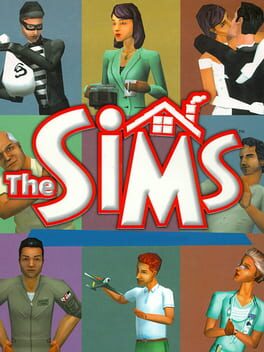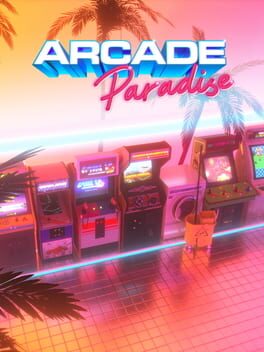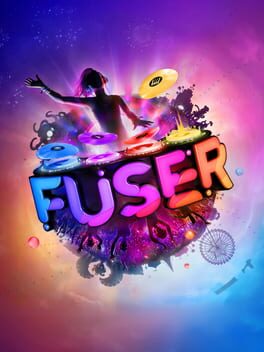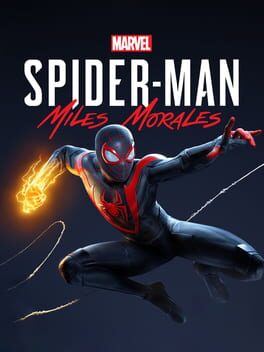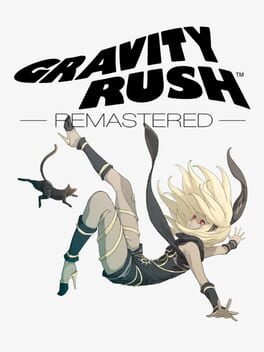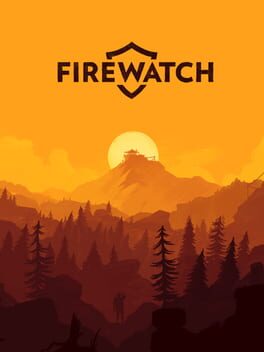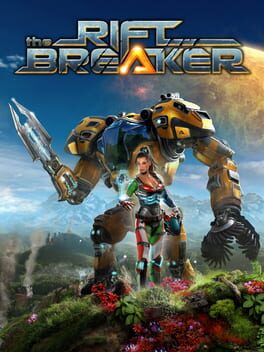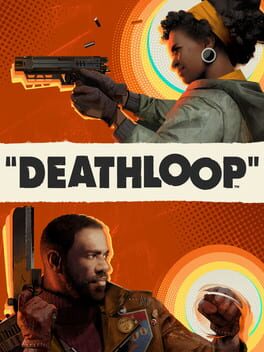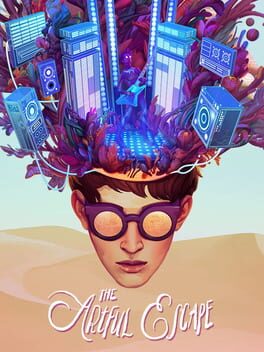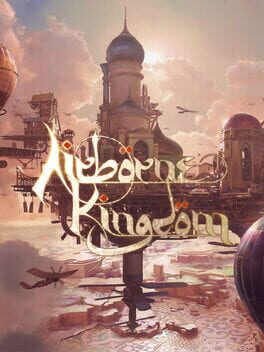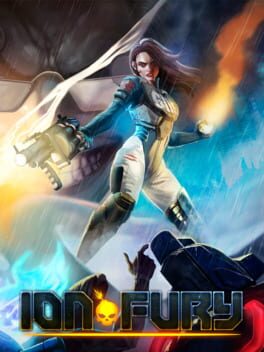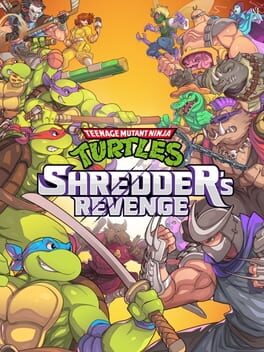Bragr
2000
What a history this game has, what legacy, one of the most influential games of that golden era of PC gaming. It almost feels like an evolution of tamagotchi, where you nurture a creature and care for them over time. The Sims is essentially an RPG, where you develop skills and roleplay with your avatars through a fantasy life.
The build system of The Sims has been developed and turned into what is today in the more recent Sims games the most flexible and endlessly creative creation suit in all of video games. This game laid down the blueprint and the following Sims games just had to add on the fantastic groundwork.
The Sims games that came this after improved the game framework so the original does feel outdated, but respect where it's due, this is an iconic game.
The build system of The Sims has been developed and turned into what is today in the more recent Sims games the most flexible and endlessly creative creation suit in all of video games. This game laid down the blueprint and the following Sims games just had to add on the fantastic groundwork.
The Sims games that came this after improved the game framework so the original does feel outdated, but respect where it's due, this is an iconic game.
2021
I think this game might have the best movement of any 2D game I have ever played, Samus is fast, accurate and leaps over obstacles like nothing. Great difficulty paired with fantastic level design comes together to form a top-tier Metroid experience.
The game is put together with the understanding that the player needs to traverse the levels quickly, and almost each area can easily be bypassed instead of having to fight each enemy over and over to get somewhere.
The boss fights has one thing I hope other games take into consideration, namely that each phase of a boss fight has very specific weaknesses, meaning that once you figured out a phase, you can quickly bypass it. It makes some of the tediousness of redoing boss fights with several phases very minute. Very clever stuff.
I love how the story is focused in one area of the game, explaining what needs to be said in a cool way without cluttering cutscenes and story heavy moments throughout, while that might not suit every game it works very well in Metroid Dread.
The devs figured out the essence of Metroid in the Metroid 2 remake they did prior and absolutely nailed Metroid Dread. Fantastic game and one of the top Switch exclusives.
The game is put together with the understanding that the player needs to traverse the levels quickly, and almost each area can easily be bypassed instead of having to fight each enemy over and over to get somewhere.
The boss fights has one thing I hope other games take into consideration, namely that each phase of a boss fight has very specific weaknesses, meaning that once you figured out a phase, you can quickly bypass it. It makes some of the tediousness of redoing boss fights with several phases very minute. Very clever stuff.
I love how the story is focused in one area of the game, explaining what needs to be said in a cool way without cluttering cutscenes and story heavy moments throughout, while that might not suit every game it works very well in Metroid Dread.
The devs figured out the essence of Metroid in the Metroid 2 remake they did prior and absolutely nailed Metroid Dread. Fantastic game and one of the top Switch exclusives.
2022
The idea is great. Build your own arcade at the back of a laundromat and have the ability to play on all the machines you buy for your arcade. As you progress, you get more machines to buy and play on as you expand your arcade.
The laundromat management part of the game is designed to be a side hustle to the arcade and to be monotonous on purpose. It ties into the theme of the story in many ways, but even so, you still spend so much time on it that you end up wishing it was more fleshed out. Unless you ignore it completely, which is possible to do, and only play arcade games.
You are at the mercy of the arcade machines, if you don't enjoy them, there is not that much else to do. I liked 5-6 of them, but the rest I had to force myself to play on. The thing is, the more you play on them, the more money they bring in, so if you don't play on them a lot, you are gonna earn slowly, something that comes close to killing the game towards the end where you have some of the bigger expenses.
The laundromat management part of the game is designed to be a side hustle to the arcade and to be monotonous on purpose. It ties into the theme of the story in many ways, but even so, you still spend so much time on it that you end up wishing it was more fleshed out. Unless you ignore it completely, which is possible to do, and only play arcade games.
You are at the mercy of the arcade machines, if you don't enjoy them, there is not that much else to do. I liked 5-6 of them, but the rest I had to force myself to play on. The thing is, the more you play on them, the more money they bring in, so if you don't play on them a lot, you are gonna earn slowly, something that comes close to killing the game towards the end where you have some of the bigger expenses.
2021
I never understood Vampire Survivors, I got addicted like anyone else, but after two days, I felt like I had done everything in the game. Once you get a few of the upgrades, it becomes pretty easy to get to the end, so the game instead becomes more about unlocking levels and whatnot, which is not that interesting. After 5 hours, I felt the game had absolutely nothing else to offer. At it's heart, it's a very simplistic flash game. What I don't understand, is what exactly everyone else is doing in the game, how can you play this for 10+ hours? there quite literally nothing in the game to do but replay the same stuff over and over.
2020
You can have some fantastic moments in Fuser when you hit the right mix and groove out, but there are some problems holding it back. And unfortunately, the game is delisted and dead since it bombed pretty hard.
In the game, you got a bunch of well-known songs that you can mix and match in some really cool ways. For example, you can take the drum sample from one song and add the lyrics from another. And on the PC, you can save your mixes (I don't think you can do that on consoles).
The problem is that there is a timing system that is not very fun. You have to time beats to get the best scores and progress, but it makes the game feel like a puzzle game rather than a music creator.
Luckily, you can go into free mode and do what you want, but most are going to start playing the campaign, and that part of the game gets a bit annoying. It also feels a bit empty in a way, where the point of the game feels like it's about getting super good at timing beats and unlocking stages, but it's not quite enough to engage you.
In the game, you got a bunch of well-known songs that you can mix and match in some really cool ways. For example, you can take the drum sample from one song and add the lyrics from another. And on the PC, you can save your mixes (I don't think you can do that on consoles).
The problem is that there is a timing system that is not very fun. You have to time beats to get the best scores and progress, but it makes the game feel like a puzzle game rather than a music creator.
Luckily, you can go into free mode and do what you want, but most are going to start playing the campaign, and that part of the game gets a bit annoying. It also feels a bit empty in a way, where the point of the game feels like it's about getting super good at timing beats and unlocking stages, but it's not quite enough to engage you.
A refined version compared to the first game, it got some better slinging mechanics and reduced a lot of the bloated extra missions, but the game also features some of the worst writing you will ever see in a triple-A game.
The villain inserts themselves as the boss of the mob overnight just because they want to and decides to outfit the bad guys with big hands that hit hard, so the game features enemies with purple-striped costumes and huge hands. I don't know what Insomniac was thinking here.
Almost all of the dialogue is unnatural, and I think Insomniac doesn't know how to write Miles himself, as he got zero charm and comes off as weak and cringe.
All in all, I hate the story and characters of this game, I wish Insomniac would fire their writers and take it more seriously, but the game still plays fantastically, it's top-tier gameplay, so I still enjoyed playing through it. But be warned, the writing is complete brain rot.
The villain inserts themselves as the boss of the mob overnight just because they want to and decides to outfit the bad guys with big hands that hit hard, so the game features enemies with purple-striped costumes and huge hands. I don't know what Insomniac was thinking here.
Almost all of the dialogue is unnatural, and I think Insomniac doesn't know how to write Miles himself, as he got zero charm and comes off as weak and cringe.
All in all, I hate the story and characters of this game, I wish Insomniac would fire their writers and take it more seriously, but the game still plays fantastically, it's top-tier gameplay, so I still enjoyed playing through it. But be warned, the writing is complete brain rot.
It's a bit tricky to explain Gravity Rush, on the surface, it's a game about flying around by shifting gravity, but the great music, quirky characters, and cool art come together and form a unique game that might be unlike anything you ever played.
The story is absolutely bizarre, several big plot points are still open when the game ends, and it feels very undercooked. But Kat (the main protagonist) is still charming enough to get somewhat invested in what is going on.
The combat is too simple, I used one move (flying kick move) pretty much the entire game, and grabbing and moving objects using the 'gravity well' isn't that well implemented.
It's possible to get disoriented and annoyed in certain spots, but for the most part, I am surprised at how well the flying works.
I ended up liking Gravity Rush Remastered a lot, it's a good remaster and it's a unique and charming game, it takes some chances and does something new.
The story is absolutely bizarre, several big plot points are still open when the game ends, and it feels very undercooked. But Kat (the main protagonist) is still charming enough to get somewhat invested in what is going on.
The combat is too simple, I used one move (flying kick move) pretty much the entire game, and grabbing and moving objects using the 'gravity well' isn't that well implemented.
It's possible to get disoriented and annoyed in certain spots, but for the most part, I am surprised at how well the flying works.
I ended up liking Gravity Rush Remastered a lot, it's a good remaster and it's a unique and charming game, it takes some chances and does something new.
2015
Some of the best setting and atmosphere of any game in the last two decades, to say that From Software hit the mark is an understatement. The lovecraftian/gothic theme hits so hard it becomes perhaps the best part of the game.
The combat is slightly different than the classic Dark Souls formula, with less emphasis of defending. In Bloodborne, it's best to dodge and lounge non-stop, being more aggressive is key.
That said, From Software did go too far in the early difficulty, this not like Dark Souls that (somewhat) easy your way in, the hardest parts of From Software games is usually when you face multiple enemies at once, and Bloodborne throws you right into gangs of enemies, making for a rough introduction.
It still has some of the old From Software annoyances (even though it's impossible to make any From Software fan admit to faults), like the absurdly cryptic items you find that just sits in your inventory, how it easy it is to get stuck in certain places, having no idea how to progress until you find your path forward through sheer luck, and the idiotic checkpoint system that puts you far back in the level if you lose to a boss (something that luckily is starting to get phased out in newer From Software titles).
It's also got some frequent annoying frame rate problems on the Playstation 4.
Still, these issues are easy to look past, and Bloodborne has gone down as one of the best games on the PS4 and one of the best games From Software has ever made.
The combat is slightly different than the classic Dark Souls formula, with less emphasis of defending. In Bloodborne, it's best to dodge and lounge non-stop, being more aggressive is key.
That said, From Software did go too far in the early difficulty, this not like Dark Souls that (somewhat) easy your way in, the hardest parts of From Software games is usually when you face multiple enemies at once, and Bloodborne throws you right into gangs of enemies, making for a rough introduction.
It still has some of the old From Software annoyances (even though it's impossible to make any From Software fan admit to faults), like the absurdly cryptic items you find that just sits in your inventory, how it easy it is to get stuck in certain places, having no idea how to progress until you find your path forward through sheer luck, and the idiotic checkpoint system that puts you far back in the level if you lose to a boss (something that luckily is starting to get phased out in newer From Software titles).
It's also got some frequent annoying frame rate problems on the Playstation 4.
Still, these issues are easy to look past, and Bloodborne has gone down as one of the best games on the PS4 and one of the best games From Software has ever made.
2016
A lot of indie games these days try to create a relaxing and peaceful atmosphere, but I think Firewatch might be the best example of a game that "aligns" you with walking around in nature.
It's a game about getting away and taking a load off your back. There are some parts of the game that deals with mystery and discovery and forming friendships, but the best part is walking around in nature. (I kinda wish the game would do less of the missions and mystery, it can almost turn into some sort of thriller at times.)
On the weak side, the ending is disappointing, and the game sets up some storylines that go absolutely nowhere. But I still have memories from this game and would recommend it to anyone who wants a shorter game to jump into.
It's a game about getting away and taking a load off your back. There are some parts of the game that deals with mystery and discovery and forming friendships, but the best part is walking around in nature. (I kinda wish the game would do less of the missions and mystery, it can almost turn into some sort of thriller at times.)
On the weak side, the ending is disappointing, and the game sets up some storylines that go absolutely nowhere. But I still have memories from this game and would recommend it to anyone who wants a shorter game to jump into.
2021
I find this to be one of the most underrated base builders of recent times, it has amazing traction and weight to the character. The mech simply feels fantastic to move around and has some serious punch to it.
I love how the building part manages to keep the satisfaction of creating an interconnected base where you gather resources and store them, as you build a perimeter filled with automated weapons. It doesn't fall into the Factorio trap, where you can build vast bases for 10 hours, and then end up feeling you built it "wrong" and have to start over again.
But, it does have some serious balance issues, as once you figure out the building process you can just use the same tactics forever. Even though there is plenty to build and do, there is a simplistic nature underneath that hurts long-term play.
Yet, I love this game, and I hope more games use the Factorio basics and expand into different sorts of games.
I love how the building part manages to keep the satisfaction of creating an interconnected base where you gather resources and store them, as you build a perimeter filled with automated weapons. It doesn't fall into the Factorio trap, where you can build vast bases for 10 hours, and then end up feeling you built it "wrong" and have to start over again.
But, it does have some serious balance issues, as once you figure out the building process you can just use the same tactics forever. Even though there is plenty to build and do, there is a simplistic nature underneath that hurts long-term play.
Yet, I love this game, and I hope more games use the Factorio basics and expand into different sorts of games.
2021
You know, this is a contentious game, and personally I never quite understood why. Granted, the first hour is really weak with excessive tutorials at every point, but as it progresses it turns into a masterpiece of player progression. What I mean by that, is the game tells you tidbits leading you on in an elegant manner that easily could have turned into a mess, yet the intelligent design knows where to push the player and where to not.
It leads you to the information you need instead of letting you loose. It's like a game designed with an open-natured approach but knows that letting the player run free would become a mess, as there would be too much back and forth, aimlessly trying to find some clue you constantly overlook. Instead, the game is aware of where you can go wrong and nudges you in the right direction. This leads to a satisfying path through the game, where you end up feeling in control of an increasingly complication picture.
The A.I. holds the game back, as they barely know how to navigate the environment and you can easily outsmart them. But even so, it's still satisfying to mow them down.
The ending is terrible and ends the game on a dud, but for the most part, this is an engaging smart game.
It leads you to the information you need instead of letting you loose. It's like a game designed with an open-natured approach but knows that letting the player run free would become a mess, as there would be too much back and forth, aimlessly trying to find some clue you constantly overlook. Instead, the game is aware of where you can go wrong and nudges you in the right direction. This leads to a satisfying path through the game, where you end up feeling in control of an increasingly complication picture.
The A.I. holds the game back, as they barely know how to navigate the environment and you can easily outsmart them. But even so, it's still satisfying to mow them down.
The ending is terrible and ends the game on a dud, but for the most part, this is an engaging smart game.
2021
You walk forward in an acid-trip-like world, talking to aliens and listening to music while a story focused on discovering yourself through music unfolds. Once in a while, there is some small music mini-game, but for the most part, this is about looking and listening as you move ahead. And that's fine because it does look and sound great, it's a presentation showcase. It's slick and polished, but I wish the music mini-games were fleshed out and more frequent, adding a bit more gameplay to the game.
2020
There is a lot to like about Airborne Kingdom, it has a great soundtrack that makes the game tranquil as you fly above the cities and cliffs below you, and I liked the resource gathering, sending the little planes down to gather what you need.
But generally, the city building doesn't need you to think too much, and because of the small building area and the need for propulsion and lift, you are a bit limited in your approach.
The game's levels also feel underdeveloped, there could be more going on down there, more to see. I also thought the first area where visibility was the best to be the best area by far. I was a bit underwhelmed as I flew around to the other places.
I wish I could fly far up in the air. Or that the world was auto-generated, so I could just take off in a direction and never look back.
The missions are also the same in every city you come to, they give you a fetch quest and rinse and repeat from start to finish.
There is enough charm and uniqueness in building a city in the sky, but I sat with a feeling during the entire game that this could be so much better. It feels like a great 1-hour demo stretched into 6 hours. But I can't say enough good things about the music, it does a lot for the game. It's on Spotify.
But generally, the city building doesn't need you to think too much, and because of the small building area and the need for propulsion and lift, you are a bit limited in your approach.
The game's levels also feel underdeveloped, there could be more going on down there, more to see. I also thought the first area where visibility was the best to be the best area by far. I was a bit underwhelmed as I flew around to the other places.
I wish I could fly far up in the air. Or that the world was auto-generated, so I could just take off in a direction and never look back.
The missions are also the same in every city you come to, they give you a fetch quest and rinse and repeat from start to finish.
There is enough charm and uniqueness in building a city in the sky, but I sat with a feeling during the entire game that this could be so much better. It feels like a great 1-hour demo stretched into 6 hours. But I can't say enough good things about the music, it does a lot for the game. It's on Spotify.
2019
Retro shooters are flooding the market and Ion Fury is usually named as one of the better ones. And I agree with that assessment, while I still think Dusk is the best of the bunch, Ion Fury is up there. The shooting in Ion Fury is tight and accurate, and it got a lot of cool callbacks to '90s shooters, and it's super fast and hit that old-school run-and-gun gameplay well.
But, there are some notable problems with Ion Fury. You can die VERY fast, which means you gotta autosave constantly. The game is also too sparse on the ammo, I barely used my favorite weapons because they rarely had ammo. I used the first few guns 80% of the time. The game also reuses the same enemies all the time, and it's possible to get a bit stuck in some places (although some might say this is a part of being a retro shooter.)
But all in all the game is a success, but it's probably a game aimed more towards fans of retro shooters. It's quite long, around 8-11 hours, and its difficulty is likely gonna bounce some people off it before the end credits.
If it was around 5-6 hours, had more ammo, and scaled the difficulty to reduce the constant need for autosaves, it would fare a lot better in my opinion.
But, there are some notable problems with Ion Fury. You can die VERY fast, which means you gotta autosave constantly. The game is also too sparse on the ammo, I barely used my favorite weapons because they rarely had ammo. I used the first few guns 80% of the time. The game also reuses the same enemies all the time, and it's possible to get a bit stuck in some places (although some might say this is a part of being a retro shooter.)
But all in all the game is a success, but it's probably a game aimed more towards fans of retro shooters. It's quite long, around 8-11 hours, and its difficulty is likely gonna bounce some people off it before the end credits.
If it was around 5-6 hours, had more ammo, and scaled the difficulty to reduce the constant need for autosaves, it would fare a lot better in my opinion.
